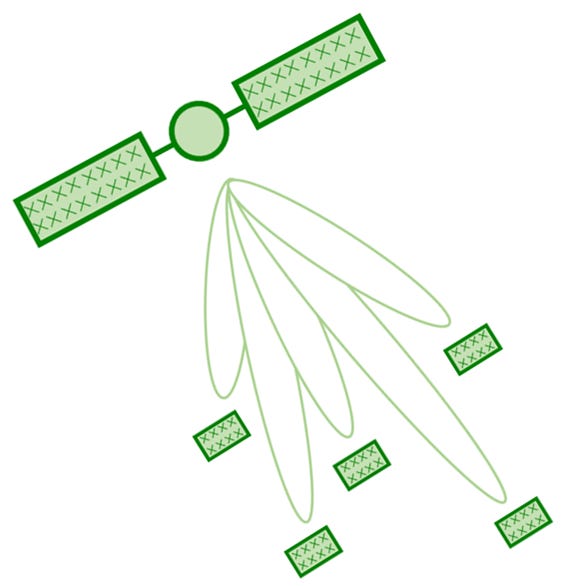In the age of AI and 5G/6G, one of the biggest challenges for telecom operators is achieving energy efficiency while expanding network capacity. Taiwanese IC design startup Ranictek is tackling this problem head-on with its advanced base station and satellite communication chips—and is growing at an impressive pace.
Speaking with TechSoda at the SEMICON Taiwan startup zone, CEO Mike Wang explained that the company’s Massive MIMO solution can reduce the transmission power required for both base station antennas and mobile phones. Compared with traditional 4G base stations, the technology improves signal-to-noise ratio (SNR) by about 9–11 dB, translating into about 30–60% lower power consumption. For end users, mobile phone standby time could potentially be doubled.
“In the 5G and 6G era, energy efficiency and longer standby time will matter just as much—if not more—than pure speed,” Wang said.
Filling a Market Gap
Wang’s journey began with a desire to address a technology gap in Taiwan.
“I’ve been working on base station technology since my master’s and Ph.D. studies, with my dissertation focused on Massive MIMO,” he recalled. After gaining experience at the Chung-Shan Institute of Science and Technology, MediaTek, and Chunghwa Telecom, Wang realized Taiwan lacked homegrown solutions for base station and satellite communication baseband chips—a gap he founded Ranictek to fill.
The company’s core technology is designed for Open Radio Access Network (Open RAN) base stations. By targeting large-scale deployments rather than small-cell systems, Ranictek aims to challenge the dominance of Nokia and Ericsson while creating opportunities for more vendors.
In parallel, Ranictek has developed a Digital Beamforming solution for satellites, enabling simultaneous connections to multiple ground devices and multiple satellites. This approach improves performance, boosts stability, and mitigates signal loss—key advantages as satellite communication becomes increasingly integral to global connectivity.
Recognition and Growth
Ranictek’s innovation has already earned international accolades. At the 2024 Asia Pacific ICT Alliance (APICTA) Awards, the company won two gold medals in the Industrial Applications & Technology for IoT category and a silver medal in the Startup category. Its flagship product, the 5G/6G Open RAN Base Station and Satellite Communication Baseband Chip, provides customers with energy-efficient and cost-effective solutions for radio units, satellites, and ground stations—accelerating 5G/6G and satellite network rollouts.
On the business front, the company has shown extraordinary momentum. Established less than three years ago, Ranictek’s revenue has already surpassed twice its capital. Last year alone, revenue grew nearly 500%. The company also generates income from IP licensing, FPGA chips, and customized ASIC solutions, catering to diverse client needs in the satellite communication sector. Currently, the company also provides customized baseband SDR services for drones and satellite communications, such as IoT or broadband modem solutions, in order to fulfill the specific needs of different customers.
According to Ranictek’s website, the company provides the following energy-saving and cost-effective baseband solutions:
(1) UAV (Unmanned Aerial Vehicle) Communications and Satcom SDR (Software-Defined Radio) Baseband Solutions:
Customized IoT and Wideband Modem Solutions
(2) Massive MIMO RU (Radio Unit) Baseband Solutions:
Supporting O-RAN Split 7.2x Option with Cat-B & Cat-B ULPI A/B
(3) Communication Satellites & Ground Stations/User Terminals Baseband Solutions:
Supporting Analog, Hybrid, and Digital Beamforming
Building the Future
Ranictek currently has 14 team members. While most clients remain local, the company has begun developing partnerships in the U.S. market.
Fundraising remains a critical focus. Wang noted that Taiwan’s investment environment can be conservative for early-stage startups, which is why the company joined a Ministry of Economic Affairs initiative that took them to Silicon Valley for entrepreneurship training and investor outreach. Two to three angel investors are currently conducting due diligence.
Looking ahead, Ranictek plans to expand its team in step with new funding and business growth. The next milestone is moving from FPGA products to ASIC chip tape-out, enabling the delivery of full-scale commercial solutions.
“We want to build chips that not only power the next generation of 5G and 6G base stations, but also redefine what’s possible in satellite communication,” Wang said.



